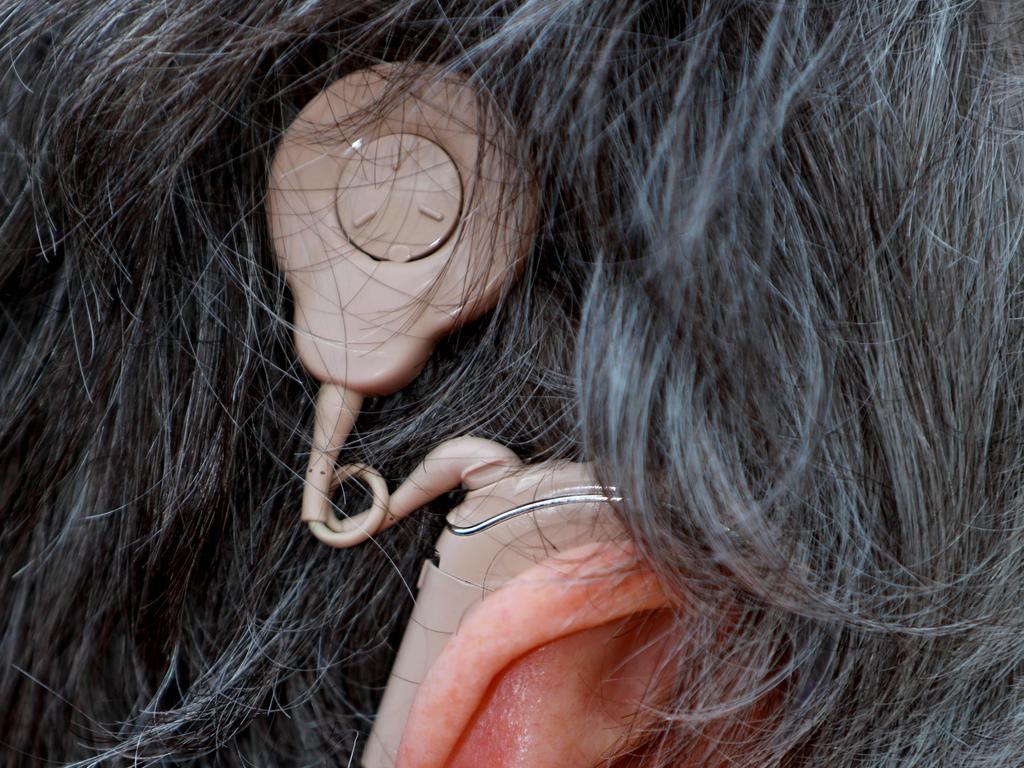Cochlear posts $238.3m loss as it counts the costs of COVID-19 and US patent infringements
Hearing implant maker Cochlear has posted a $238.3m loss after elective surgery cancellations and US litigation expenses wiped out profits.

Cochlear chief executive Dig Howitt says the call from his counterpart at Wesfarmers, Rob Scott, to overhaul the tax system will form one plank to catapult the Australian economy from the COVID-19 doldrums and make the nation internationally competitive for business investment again.
But Mr Howitt says tax reform is only one part of restoring the health of the Australian economy post COVID-19 and needs to be part of a three-pronged reform including energy prices and industrial relations.
He said a “holistic solution” was needed, rather than looking for “just one or two tweaks”.
“Very clearly, the economy needs to create jobs at a faster rate than has happened to get out of here from an Australian perspective. And to create jobs faster than we have done before we have got to have conditions that support business investment,” Mr Howitt said.
“Business makes up 85 per cent-plus jobs in the country, whether they’re small, medium or large business, and those jobs depend on businesses investing. Creating the conditions for investment is important. The tax regime is absolutely one of those, and there is work being done to look at the overall tax system and structure.
“Further, we have got to look at energy prices, we have got to look at industrial relations. It’s a real opportunity to make sure we have an internationally competitive economy where businesses will invests and we can create jobs that will help both people and the economy recover from here.”
Mr Howitt’s comments came as Cochlear’s shares surged to their highest levels since early March before the COVID-19 pandemic took hold in Australia and fuelled the biggest share market rout in 30 years.
The stock was the third best performer on the S&P/ASX200 Index on Tuesday, jumping $19.44, or 9.8 per cent, to $217.74.
While the hearing implant maker sank to a full-year loss of $238.3m — a 186 per cent turnaround on 2019 — after losing a patent infringement lawsuit in the US and coronavirus-led elective surgery cancellations, the result came in ahead of analyst expectations.
Macquarie analysts said Cochlear implant revenues were the “driver of the beat” — 18 per cent ahead of their forecasts and about 8 per cent ahead of consensus, “driving better than expected revenue, gross profit and earnings”.
Cochlear implant levels have now returned to about 85 per cent of 2019 levels. Overall, full-year revenue slumped 6 per cent to $1.352bn.
On Monday, Mr Scott — who oversees retail chains including Bunnings, Kmart and Target, which employ 107,000 workers — called on the federal government to bring forward investment and create jobs by introducing a 20 per cent investment allowance, after a similar policy achieved success in the 2008 financial crisis for purchases of plant and equipment.
Over the long term, he said, the GST could be changed so other taxes that discouraged job creation could be lowered or removed.
Mr Howitt said he supported the government’s efforts so far, including its JobKeeper wage subsidy, which pays eligible workers $1500 a fortnight. Cochlear has been a beneficiary of JobKeeper after its revenue plummeted 60 per cent in April.
Mr Howitt said the subsidy had allowed the company to keep paying its workers at their normal rate despite shutting down half of its manufacturing operations for the past three months.
“Our people have been working one week and having the other week off. With JobKeeper it helps us to be able to continue to pay staff at their normal level, which is clearly what the government wants — to retain jobs, retain their incomes so they can spend and keep the economy going.
“It has given people confidence in their job security. People who do a good job don’t want to worry about whether they will have a job.”
Mr Howitt supported the government retesting JobKeeper eligibility next month, saying it would include other companies who weren’t previously eligible in April.
Cochlear has received $23.6m in government assistance via the Morrison government’s JobKeeper wage subsidy and other taxpayer-funded programs in the US, Europe and Asia.
It has declined to give any profit guidance for the current financial year and reiterated a March statement that it would suspend its dividend until “trading conditions improve”.
“The board expects to resume payment of a dividend once a clear and sustained improvement in sales revenue has been established and cash flow generation is sufficient to support its resumption,” the company said.
“Due to the uncertain timing of a global recovery from the pandemic, we cannot reliably estimate 2021 financial year revenues, so will not be providing earnings guidance. A trading update will be provided at the AGM on 20 October.”
The $238m loss also included $416.3m in patent litigation expenses after the US Courts of Appeals in March upheld a US District Court ruling that Cochlear had wilfully infringed the patents of two competitors Alfred E. Mann Foundation for Scientific Research and Advance Bionics.
Cochlear paid $420.1 in litigation expenses in June and made a provision for $US75m ($104m) in prejudgement interest and attorneys’ fees with payment conditional upon the outcome of an appeal by Cochlear to the US Supreme Court.
Stripping out these costs, Cochlear’s net profit fell 42 per cent to $153.8m. Despite the uncertainty from the coronavirus pandemic, Mr Howitt remained confident about Cochlear’s longer term outlook and said it was in a strong financial position after completing a $1.1bn capital raising in March.





To join the conversation, please log in. Don't have an account? Register
Join the conversation, you are commenting as Logout